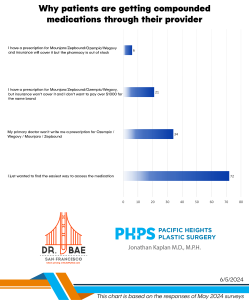Ever heard of concierge medicine? For those of you not familiar, this is a medical practice that runs as a cash-only business, accepting no insurance. But in return for the patient’s acceptance of this streamlined, insurance-avoiding business model, your doctor is at your beck and call! That’s where the concierge idea comes in. Your doctor, much like the concierge desk at a hotel, is at your service day or night, 24/7 in exchange for a monthly or annual fee from a low of $100 per month to more extravagant plans of thousands of dollars a year.

The benefit to the doctor is that they can avoid endless reams of paper resulting from the billing, denials and appeals associated with accepting insurance. The benefit to the patient is that by paying money out-of-pocket to their concierge doctor, similar to the amount they would have paid to an insurance company, they have quicker, easier access to their primary care doctor without the preauthorizations and limitations they often see with insurance plans.
But when you start accepting only cash, foregoing insurance and offering a concierge experience, the doctor’s practice changes fundamentally. And I bet most of those doctors that embark on this journey are surprised by some of those changes. In a recent article on the Medscape site, Cash-Only Practice: What You Need to Do to Succeed, several of the pitfalls are revealed. Helen Hadley, Founder and CEO of VantagePoint Healthcare Advisors in Hamden, Connecticut, which has concierge physicians as clients, and who is a patient of a concierge medicine practice herself, points out these pitfalls for the unsuspecting doctor.
“Some physicians don’t realize that there is a high level of customer service that they’re going to have to market to their patients,” she says. “Not just that you’re going to give them your cellphone number. I want something extra. When I call, I want to be put through. When I walk in, I do not want to sit for 10 minutes. From a customer service perspective, some concierge physicians may not realize that they have a little more work to do in that area.”
While these may seem like strange demands to the primary care doctor, this is the norm for a plastic surgeon with a large contingent of cosmetic surgery patients. Because those patients pay out of pocket too, they expect the utmost in customer service. As far as they’re concerned, the doctor should always be available and the patient should be seen as often as the patient likes. Waiting is a no-no and being placed on hold is an irritant to them. They want and should be consoled and nurtured as needed. While I’m not suggesting some patients should be treated better than others, there is no question that patients that pay out of pocket, especially cosmetic surgery patients, expect to be treated differently.
A primary care doctor that switches to a concierge practice will need to accept many changes in their practice even if they’re not accepting insurance. By taking patients paying out of pocket, customer service takes on added importance. Of course, patient care and focusing on diseases processes and treatment are still the cornerstone of a good primary care doctor, but concierge doctors will need to bring themselves and their office into the realm of customer relationship management (CRM). These are strange times when primary care physicians have to be aware of CRM and provide customer service like a cosmetic plastic surgeon. And to this end, observing and subsequently emulating a cosmetic plastic surgeon’s practice may be a good first step in their transition to the world of concierge medicine.
Click here for the original blog post written by Dr. Jonathan Kaplan for BuildMyBod.




